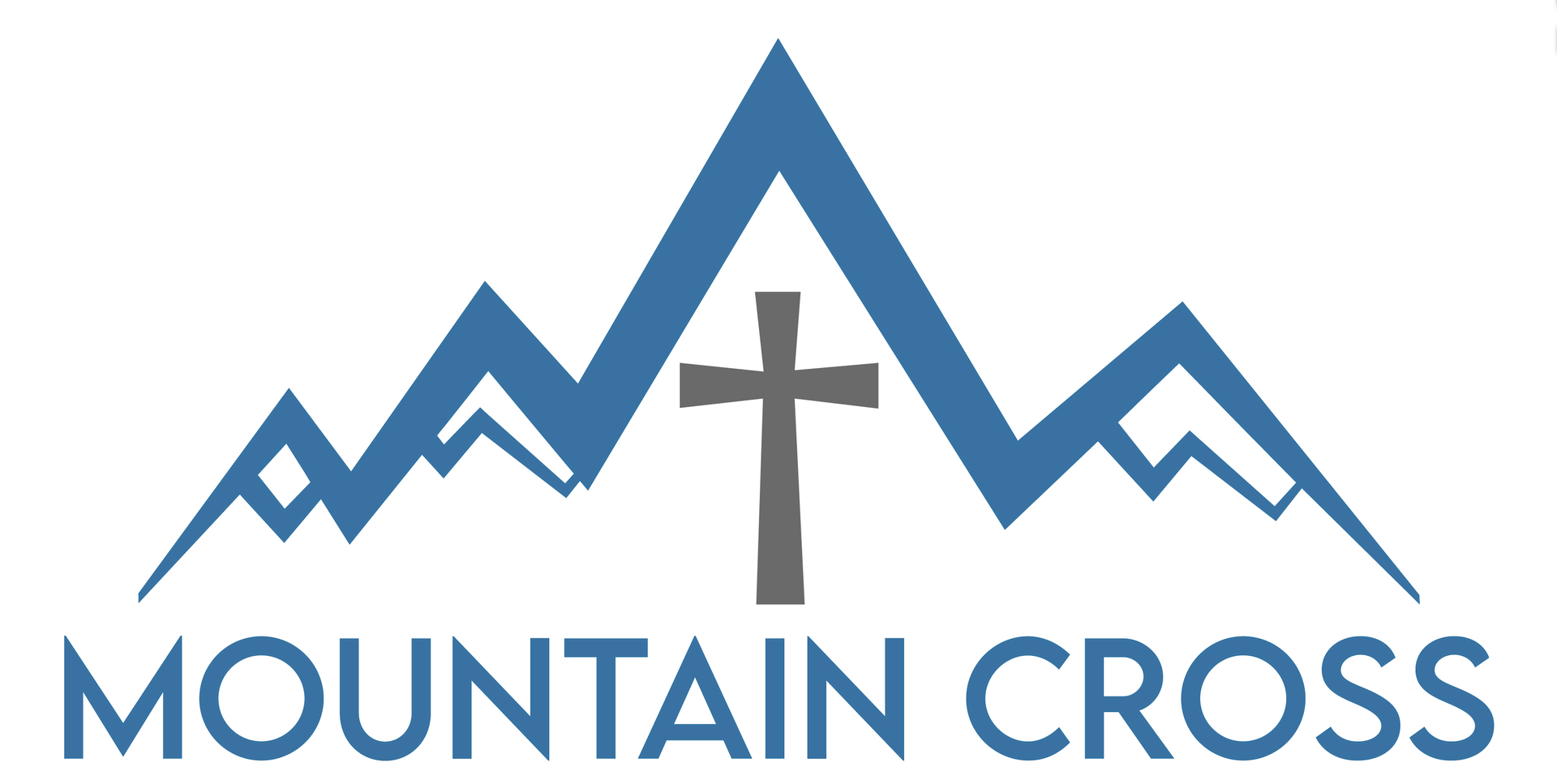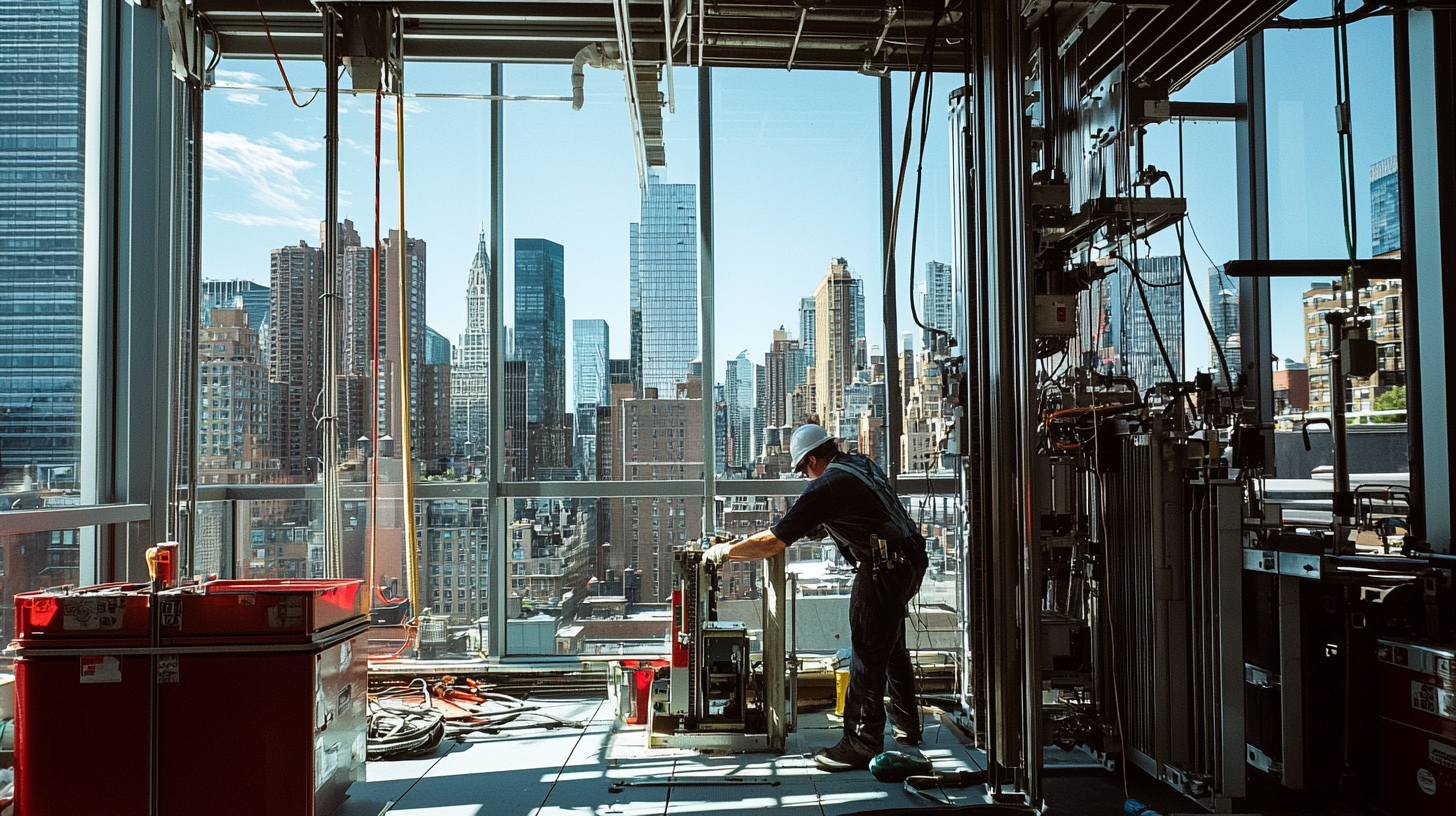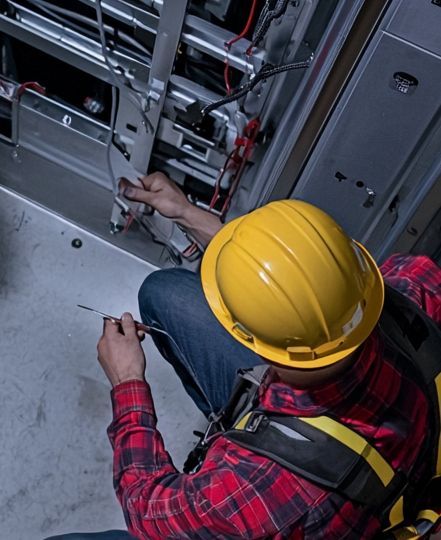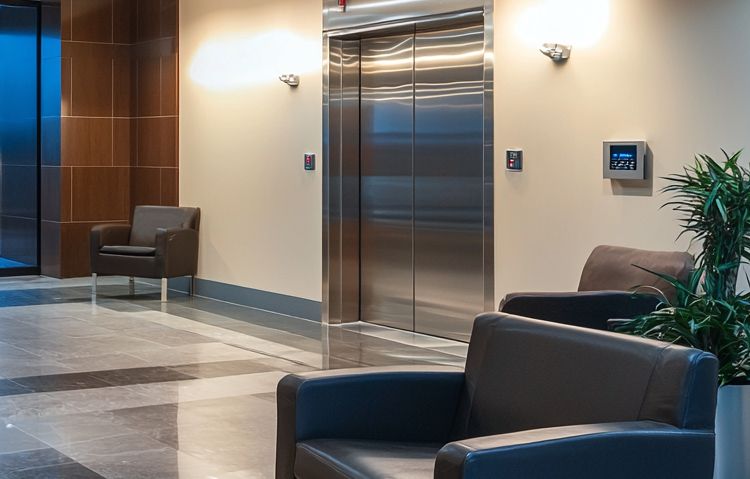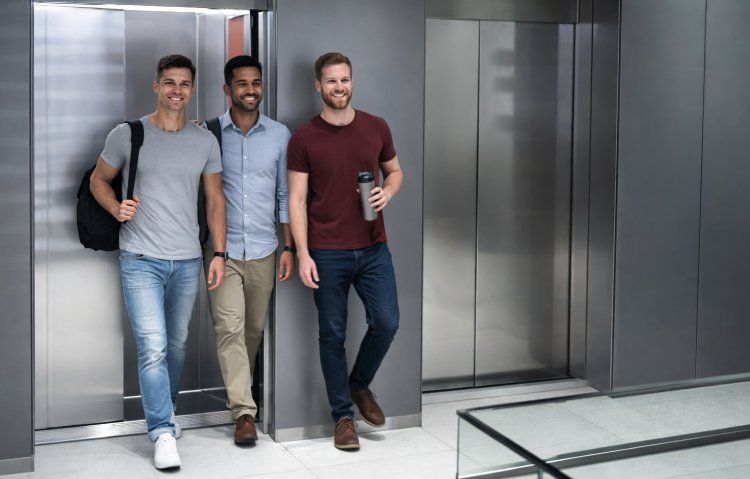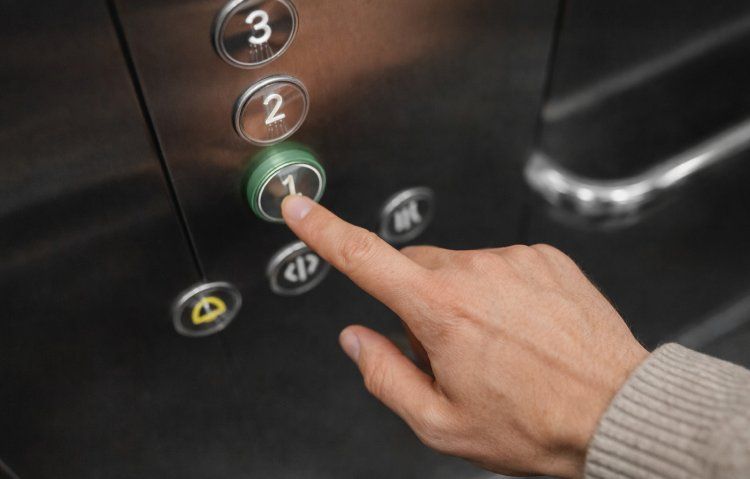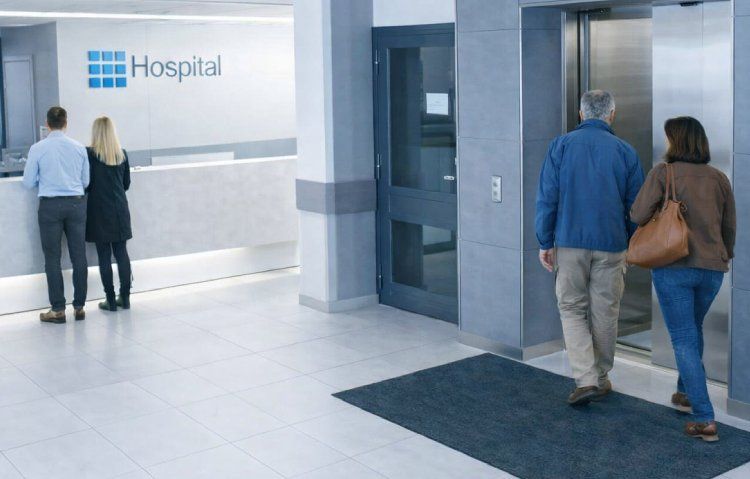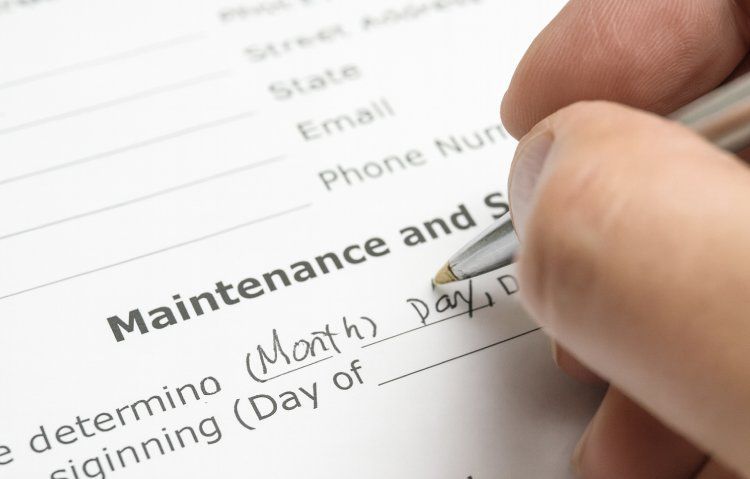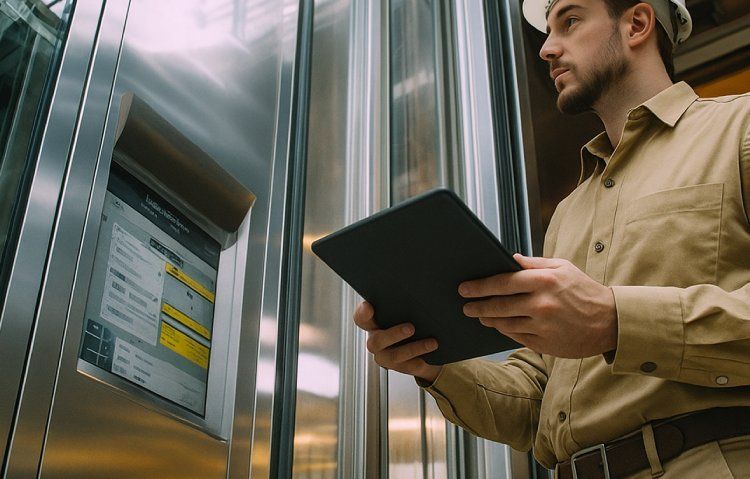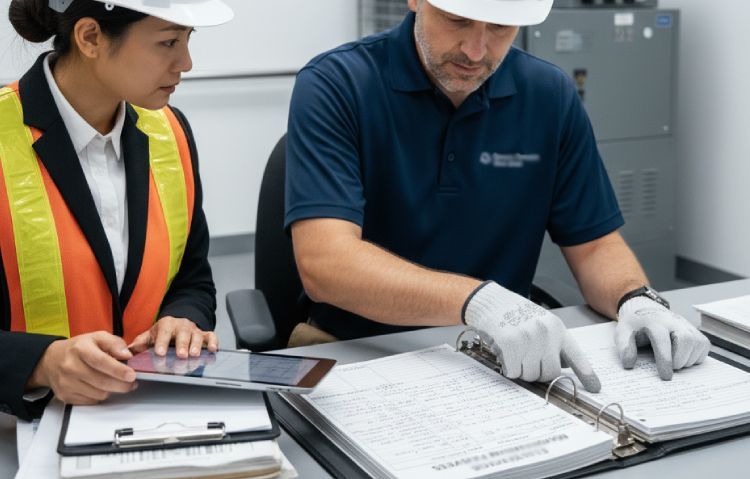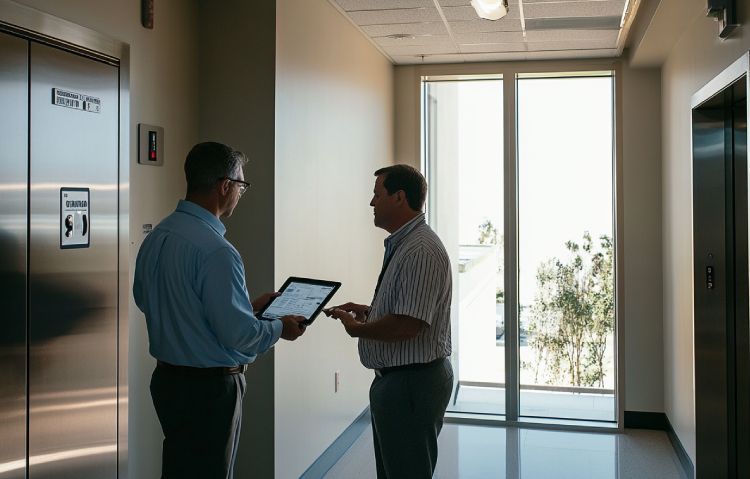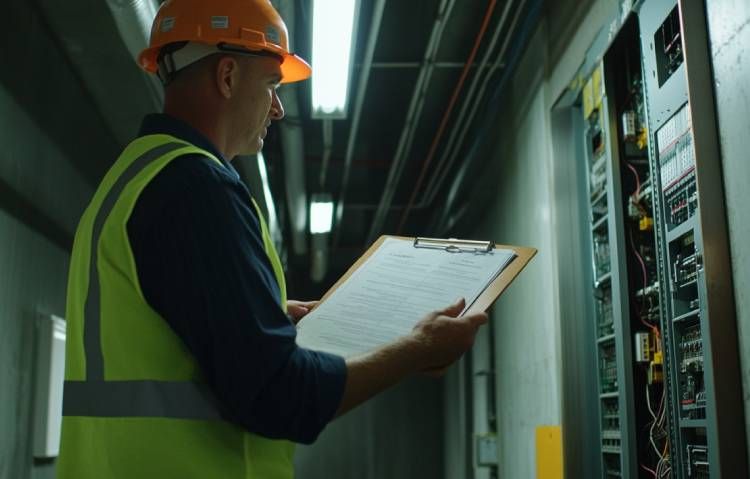The Need for a Maintenance Control Program for Elevators and Vertical Transportation Assets
Vertical transportation systems like elevators and escalators are vital for seamless movement within buildings. In the U.S., 900,000 elevators transport 325 million people daily, emphasizing their importance in daily life. A Maintenance Control Program ensures efficiency, safety, and reliability. Expert consulting solutions help minimize disruptions, keeping systems operating at peak performance.
Why a Maintenance Control Program is Crucial for Elevators and Vertical Transportation
A well-designed maintenance control program (MCP) is a proactive, structured approach to managing and maintaining elevators and other vertical transportation systems. These assets are subjected to regular wear and tear due to constant use, which increases the likelihood of mechanical failures, safety risks, and inefficiencies. By having a dedicated program in place, building owners and facility managers can mitigate these risks and extend the lifespan of these assets.
Benefits of a Maintenance Control Program for Elevators
Enhanced Safety
Regular maintenance prevents accidents and safety hazards associated with faulty elevator systems. Issues such as malfunctioning door sensors, broken cables, and poor lubrication can lead to serious injuries or even fatalities. In fact, approximately 17,000 elevator-related injuries and 30 fatalities occur annually in the U.S. Many of these incidents could be avoided through proactive maintenance and safety checks. An MCP ensures that each component is thoroughly inspected, reducing the chances of unexpected breakdowns and safeguarding those who rely on these systems.
Improved Operational Efficiency
A well-maintained elevator operates more efficiently, leading to reduced wait times, faster travel speeds, and a smoother overall experience for passengers. This is particularly critical in high-traffic areas like office buildings, malls, and residential complexes.
Cost-Effective Long-Term Performance
Routine inspections and maintenance often catch minor issues before they turn into major, costly repairs. With elevators in the U.S. averaging over 20 years of service, many still rely on outdated components that can be prone to failure without proper maintenance. An MCP helps identify worn-out parts and enables timely replacements, ultimately saving building owners significant repair costs and reducing the need for expensive emergency fixes.
Compliance with Legal Standards
Elevators and other vertical transport systems are subject to local safety and inspection regulations. A structured maintenance program ensures compliance with these rules, avoiding penalties and legal complications. At Mountain Cross Consulting, we stay abreast of the latest codes and regulations to guarantee that your systems meet the highest safety standards.
Key Elements of an Effective Maintenance Control Program
An effective MCP incorporates several components that focus on both preventive and predictive maintenance. Elevators, being 20 times safer than escalators, still require more regular maintenance due to their complexity and frequency of use. This strategy goes beyond simple repairs, aiming to increase the reliability and longevity of your vertical transportation systems.
Routine Inspections and Testing
Regular inspection is the cornerstone of any MCP. Qualified technicians should conduct periodic checks to assess the functionality of all major components, including doors, motors, cables, sensors, and the control system. Testing should involve:
- Operational tests to ensure smooth movement.
- Load testing to verify capacity limits.
- Safety function tests to confirm emergency stop and backup systems.
Predictive Maintenance
Predictive maintenance utilizes advanced diagnostic tools, such as vibration analysis and infrared thermography, to monitor the health of equipment in real-time. By identifying signs of potential failures early, predictive maintenance enables facilities to address issues before they escalate.
Emergency Response Plans
An MCP must include an emergency response plan. This includes protocols for handling system malfunctions, such as power outages or mechanical failures. A rapid response team, equipped with the necessary tools and parts, can minimize downtime and ensure passengers' safety.
Replacement of Wearable Parts
Certain parts of elevators, such as cables, bearings, and seals, undergo significant wear and tear with regular use. Having a structured schedule for replacing these components is vital to ensuring continued safety and performance.
Record-Keeping and Documentation
Maintaining thorough records of all maintenance activities is essential for both operational transparency and regulatory compliance. An effective MCP will track:
- Inspection dates and findings
- Repairs made and parts replaced
- Testing and performance results
- Compliance certifications
These records can help track trends over time, identify recurring issues, and ensure that the elevator is consistently meeting safety and efficiency standards.
How a Maintenance Control Program Improves the Lifespan of Vertical Transportation Assets
An elevator or escalator is an investment that serves a critical function within your building’s infrastructure. Without proper care, however, it can deteriorate faster than expected. A robust MCP directly influences the longevity of these assets.
Prevents Premature Failure of Key Components
Elevators consist of many parts that experience continuous friction and stress. From the motor and control panel to the cables and pulleys, neglecting any component can lead to system failures. In fact, elevators move the equivalent of the entire U.S. population every three days, highlighting the immense strain placed on these systems. Regular maintenance helps prevent premature breakdowns by ensuring components are replaced or repaired before they fail entirely, reducing wear and extending the system’s lifespan.
Reduces Wear and Tear
Frequent inspections and maintenance reduce the strain placed on your elevator system, mitigating the effects of daily use. As a result, elevator components experience less wear and continue functioning optimally for longer periods.
Enhances Return on Investment (ROI)
Investing in a structured maintenance plan can extend the lifespan of your vertical transportation assets, providing a higher return on investment. As routine maintenance addresses wear before it becomes critical, costly replacements and repairs are less frequent.
Best Practices for Elevators and Vertical Transportation Systems
For facilities aiming to maintain their vertical transportation systems at peak performance, following industry best practices is essential. These best practices will guide your approach to implementing a comprehensive MCP.
1. Implement a Tailored Maintenance Schedule
Every vertical transportation system has unique needs depending on usage, age, and building type. A tailored maintenance schedule ensures that each asset receives the attention it needs at the right time. For example, high-rise buildings with heavy elevator traffic will require more frequent checks than residential complexes.
2. Train Your Maintenance Team
Your in-house maintenance team should be trained to recognize early signs of malfunction. However, for more advanced diagnostics and repairs, partnering with experienced service providers like Mountain Cross Consulting will ensure optimal results. Our specialized expertise ensures your elevators receive the highest level of care and attention.
3. Stay Ahead of Regulatory Changes
Laws and regulations governing elevator safety can change. A proactive MCP ensures your equipment always meets current standards. We at Mountain Cross Consulting make it a priority to stay informed about local, state, and federal regulations to keep your system compliant.
4. Invest in Modern Technology
With advances in technology, modern elevator systems are equipped with smart sensors and diagnostic tools. These tools allow for remote monitoring and predictive maintenance, reducing the need for physical inspections. Incorporating such technology into your MCP can boost efficiency and cut down on costs.
5. Plan for Emergency Situations
Elevators can experience unexpected failures, such as power outages or mechanical breakdowns. An effective emergency plan, including backup power systems and protocols for evacuations, ensures that passengers remain safe and that the elevator system can be restored to service quickly.
Choosing the Right Maintenance Partner
Maintenance control programs differ in effectiveness. Selecting the right service provider is key to maximizing the impact of your program. Mountain Cross Consulting offers customized MCPs that prioritize safety, efficiency, and compliance.
Why Choose Mountain Cross Consulting?
- Experienced Professionals: Our technicians are certified and experienced in all aspects of elevator and vertical transportation systems.
- Comprehensive Services: We offer a full range of services, from inspections and repairs to technology integration and emergency response planning.
- Customized Solutions: We tailor our maintenance programs to meet the unique needs of your building and equipment.
- Regulatory Expertise: Stay compliant with local regulations and safety codes with our up-to-date knowledge.
Frequently Asked Questions
How often should elevators undergo maintenance?
Elevators should be maintained regularly, ideally once a month. However, for high-traffic buildings, more frequent inspections may be necessary. Creating a customized maintenance schedule that takes into account the building's usage, the elevator's age, and the manufacturer's recommendations helps ensure optimal performance of the system. Routine maintenance helps identify wear and tear, address minor issues, and avoid costly emergency repairs or system failures that could disrupt service and safety.
What are the benefits of predictive maintenance for elevators?
Predictive maintenance uses advanced technology to monitor the health of elevator components, identifying potential failures before they occur. By using sensors, data analytics, and diagnostics, predictive maintenance allows facility managers to address issues early, reducing unplanned downtime and costly repairs. It improves the reliability and safety of the elevator, extends its operational life, and ensures compliance with safety regulations, ultimately lowering long-term maintenance costs.
What should be included in an elevator emergency response plan?
An elevator emergency response plan should include clear protocols for handling system malfunctions, power failures, or passenger entrapment. It should outline procedures for emergency evacuation, safe shutdown, and communication with emergency responders. The plan must include backup power systems and ensure that maintenance teams can quickly access the elevator for repairs. Regular drills and employee training will prepare everyone in case of an emergency.
Conclusion:
Don't wait for an emergency or malfunction to take action. Investing in a proactive maintenance program is essential for protecting your building's vertical transportation assets for years to come. By implementing regular maintenance, utilizing predictive diagnostics, and partnering with a dedicated service provider, you can ensure the safety, reliability, and longevity of your elevators and escalators.
At Mountain Cross Consulting, we specialize in designing, implementing, and managing tailored maintenance control programs that cater to your building’s specific needs. Contact us today to schedule a consultation and begin optimizing your vertical transportation assets.
Contact Us Today to Learn More About Our Elevator Maintenance Services!
Mountain Cross Consulting provides maintenance control solutions to keep your elevators and vertical transportation systems operating efficiently. Let us assist you in protecting your investment.
Contact us today to discuss a customized MCP tailored to your building’s needs!
Ready to work with Mountain Cross Consulting?
Let's connect! We’re here to help.
Send us a message and we’ll be in touch.
Or give us a call today at 224-500-0321
